Psychosocial Hazard Prevention Management
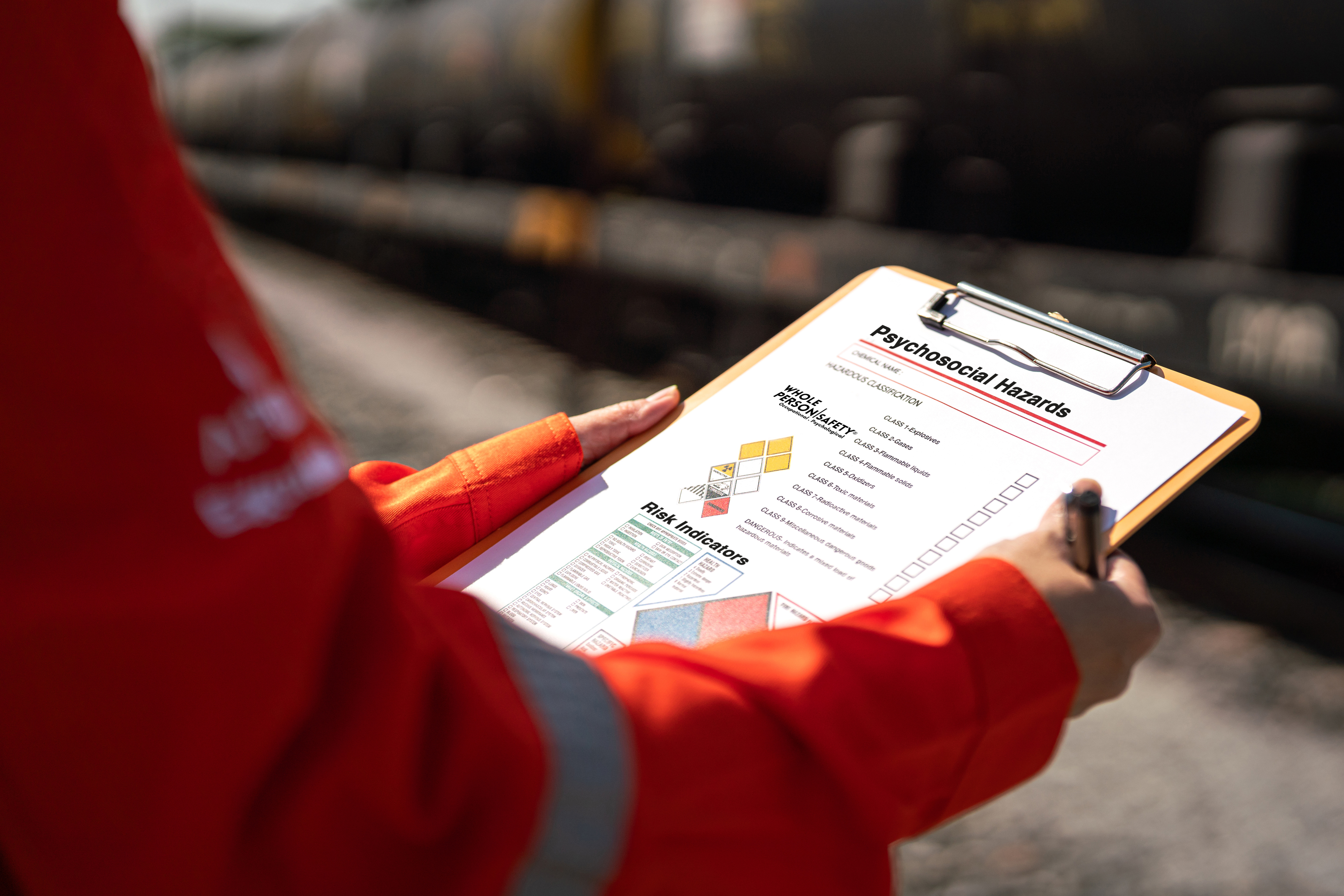
Diversity, Equity & Inclusion
Workplace Psychological Safety and Accountability
Organizations that actively address psychosocial hazards can see up to a 60% reduction in workplace stress and a 50% improvement in employee engagement and productivity. Imagine a work environment where employees are not only free from fear but empowered to innovate and excel. By removing these barriers, we can transform workplaces into hubs of resilience and high performance, fostering a culture where people genuinely want to work and thrive.
Yet, too many workplaces fail to recognize the profound impact that psychological safety and accountability have on operational success. When employees operate in an environment where fear, uncertainty, and disengagement take hold, the result is low morale, high turnover, increased safety incidents, and lost productivity.
A workplace culture that prioritizes accountability and psychological safety doesn’t just protect employees, it fuels business excellence
Diversity, Equity & Inclusion
Removing the Barriers of Psychosocial Hazards
Removing the barriers of psychosocial hazards is essential for fostering a healthy, productive, and supportive workplace environment. Psychosocial hazards are aspects of work design and management, as well as the social and organizational context of work, that have the potential to cause psychological or physical harm to employees. These hazards, including excessive workloads, lack of control, role ambiguity, poor organizational support, interpersonal conflicts, job insecurity, work-life imbalance, and exposure to violence or traumatic events, contribute to creating unsafe work environments both physically and psychologically. They lead to increased stress, burnout, and diminished job performance, undermining overall workplace safety and well-being.
Our Whole-Person Safety methodology is uniquely designed to identify, assess, and mitigate the risks associated with psychosocial hazards. With over 35 years of experience, our team of experts employs a proactive approach to implementation, focusing on sustainable solutions and train-the-trainer strategies. Our comprehensive approach spans six human safety zones: Built Environment Safety, Workplace Safety, Inclusion Safety, Knowledge Equity Safety, Well-Being Safety, and Behavior Safety. By integrating these zones, we create a holistic strategy that addresses the physical, psychological, social, emotional, and intellectual needs of employees.
Organizations that actively address psychosocial hazards can see up to a 60% reduction in workplace stress and a 50% improvement in employee engagement and productivity. Imagine a work environment where employees are not only free from fear but also empowered to innovate and excel. By removing these barriers, we can transform workplaces into hubs of resilience and high performance, fostering a culture where people genuinely want to work and thrive.
When workers spend long hours in physically taxing environments and environmental conditions that are not managed it can lead to chronic fatigue, depression and increased injury risks. When built environments are not designed to be accessible, inclusive and respectful to a human’s fundamental needs, it can create an increase in fear, exclusion and significantly impact the physical, physiological and psychological health.
Employees exposed to traumatic events, witnessing or being involved in life-threatening situations, near-misses, or hazardous material can cause psychological distress, anxiety, and post-traumatic stress disorder (PTSD). Additionally, workers dealing with hazardous materials, biohazards, or emergency spill responses may experience emotional strain from their work, especially if proper debriefing or mental health support is lacking.
When workers spend long hours in physically taxing environments and environmental conditions that are not managed it can lead to chronic fatigue, depression and increased injury risks. When built environments are not designed to be accessible, inclusive and respectful to a human’s fundamental needs, it can create an increase in fear, exclusion and significantly impact the physical, physiological and psychological health.
Change Management
Relationships and Interactions
In highly structured, fast-paced industries, poor workplace relationships can lead to tension, distrust, and decreased productivity. Poor communication, favoritism, exclusion, or unresolved disputes between coworkers or supervisors can create a toxic work culture. A lack of team cohesion, misalignment of goals, or disrespectful interactions can impact safety, decision-making, and job satisfaction. If left unaddressed, interpersonal conflicts may lead to harassment claims, increased turnover, and lost operational efficiency.
Relationships and Interactions
Bullying in the workplace often manifests as intimidation, excessive criticism, deliberate exclusion, or undermining someone’s work. It may be perpetrated by supervisors, coworkers, or managers and can be exacerbated in male-dominated industries where harsh leadership styles or a "tough it out" culture is prevalent. Bullying creates stress, anxiety, and decreased confidence in employees, leading to high turnover, disengagement, and lower workplace morale.
Gender-Based Harassment
Workplace harassment includes unwanted comments, gestures, discrimination, inappropriate physical contact, or offensive jokes based on gender, race, or other protected characteristics. Without strong policies and enforcement, harassment can drive skilled workers away, increase legal risks for companies, and create an unsafe working culture.
Organizational justice refers to how fairly policies, procedures, and decisions are applied within a workplace. In industries where favoritism, inconsistent disciplinary actions, or unfair work allocation exist, workers may feel disrespected, undervalued, or resentful. Unequal treatment in promotions, pay, workload distribution, or dispute resolution undermines trust in leadership and can create division within teams.
When employees feel undervalued for their efforts, are not compensated fairly, or do not receive acknowledgment for contributions to safety, innovation, or productivity, it leads to low morale, disengagement, and job dissatisfaction. Over time, a lack of recognition contributes to higher turnover rates and difficulty attracting skilled talent.
and Recognition
Violence and aggression in these industries can come from coworkers, supervisors, clients, or external stakeholders. In high-pressure environments, conflicts can escalate into verbal or physical altercations. Additionally, workplace substance abuse, power imbalances, or high-stress conditions can contribute to violent behavior. Without strict policies and enforcement, workplace aggression can create a climate of fear, reduced teamwork, and psychological harm.
When job roles and expectations are unclear, workers may struggle with understanding their responsibilities, reporting structures, or performance expectations. Role ambiguity increases frustration, stress, and the likelihood of mistakes or accidents. This is especially critical in high-risk and high-performing industries where clear roles are necessary to ensure safety protocols are followed correctly and tasks are completed efficiently.
Low job control occurs when workers have little say in how or when they complete their tasks. When workers cannot influence their work environment or make decisions about their tasks, it contributes to low morale, reduced motivation, and decreased problem-solving initiative, which can affect overall workplace efficiency and safety.
Many industrial sectors operate in remote locations, offshore sites, underground mines, or isolated manufacturing plants, leading to social disconnection, loneliness, and increased mental health challenges. In isolated settings, access to fundamental essential needs may be limited. Employees working alone may also experience higher stress levels and safety risks due to a lack of immediate support.
Cognitive demands, such as problem-solving under pressure, making quick decisions in hazardous conditions, or managing multiple priorities, can also contribute to stress. When job demands exceed a worker’s capacity or there is inadequate staffing, it increases the risk of mental exhaustion, burnout, and safety incidents.
Poor support occurs when supervisors, coworkers, or the organization fail to provide adequate guidance, resources, or assistance. The absence of effective support networks can increase isolation, stress, and mental health risks. Without proper leadership and peer support, workers may feel undervalued and left to navigate challenging tasks alone.
Diversity, Equity & Inclusion
The Cost of Ignoring Psychosocial Hazards
Psychosocial hazards erode workplace culture from the inside out. Unchecked stress, burnout, toxic leadership, lack of role clarity, and workplace incivility lead to disengagement, conflict, and systemic dysfunction. Without preventative measures, organizations face:
- Higher rates of absenteeism, turnover, and employee dissatisfaction
- Diminished productivity and increased human error
- Greater financial and reputational risks due to workplace incidents
- Weakened leadership integrity and fractured team cohesion



Ignoring psychosocial hazards is not just a business risk with long-term consequences. To build a future-ready workforce and organization must recognize accountability as a catalyst for growth and psychological safety as the foundation of innovation and engagement. When employees feel safe to speak up, take initiative, and collaborate without fear, they bring their best ideas, their full potential, and their long-term commitment to the organization.
By implementing the strategies, principles and practices of Whole-Person Safety, workplace cultures can be transformed into a place of innovation, collaboration fostering a culture of trust, open communication, and a supportive leadership that enables and empowers your team to achieve higher levels of productivity and well-being.
Diversity, Equity & Inclusion
Psychosocial Hazard Prevention
Workplace safety is not just about preventing physical injuries, it requires protecting employees’ psychological health and safety from the hidden risks that drive stress, disengagement, and instability.
Psychosocial hazards are the workplace conditions, leadership behaviors, and systemic barriers that undermine psychological safety, creating environments where employees feel uncertain, unsupported, and vulnerable to harm.
These risks lead to:
- Erosion of psychological safety & trust – When employees feel unsafe speaking up, accountability weakens.
- Increased safety incidents – Chronic stress and mental fatigue lead to lapses in judgment and risk-taking behavior.
- Burnout & performance breakdowns – When emotional strain builds, productivity and focus decline.
- High turnover & absenteeism – Employees leave environments that disregard their mental well-being.
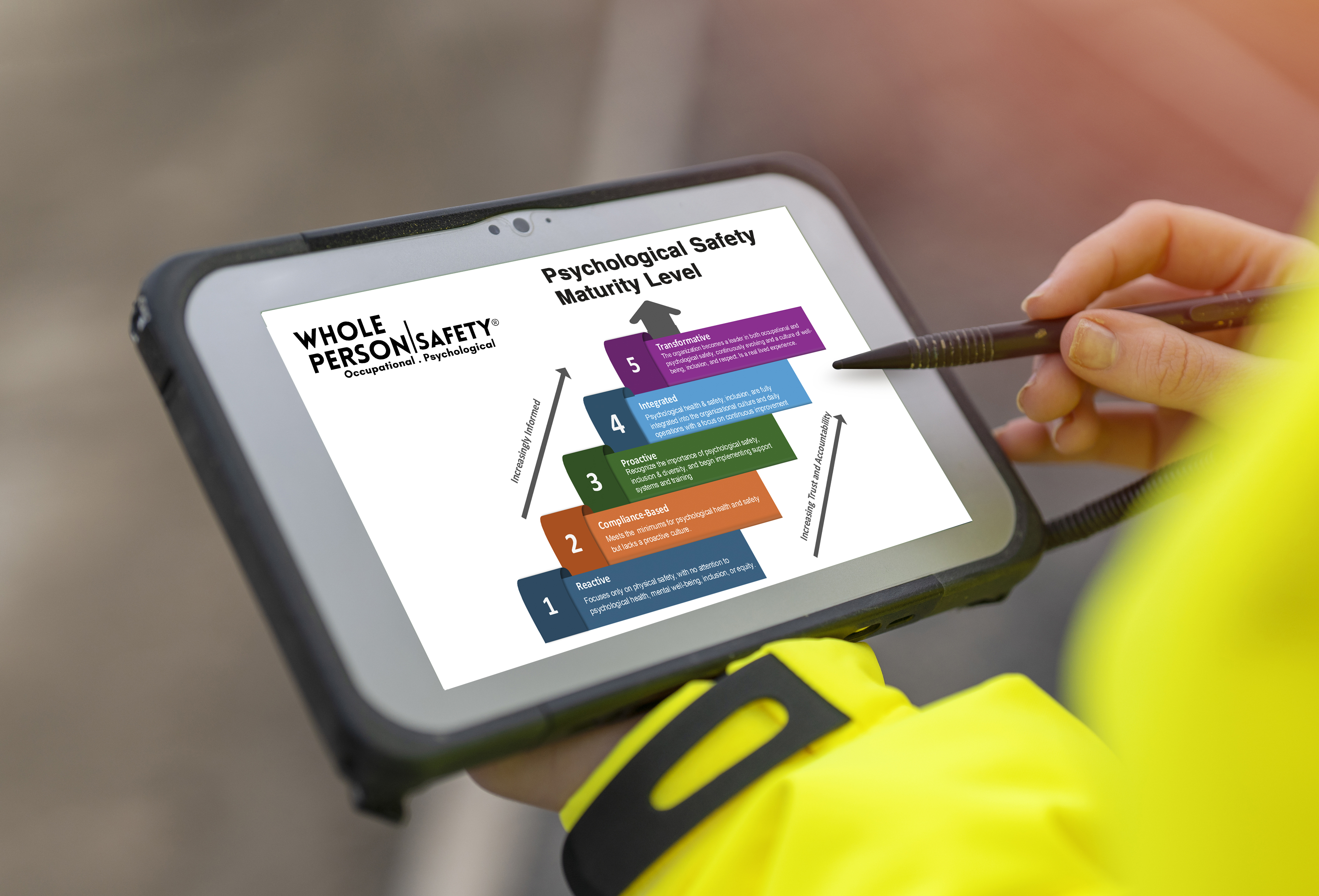
Unwelcome conduct based on sex, gender, or other protected characteristics that creates a hostile or offensive work environment. Harassment undermines dignity, can cause severe emotional distress, and is detrimental to workplace cohesion.
Exposure to distressing events or content—such as accidents, injuries, or handling sensitive information—can have lasting psychological effects on employees, including anxiety and post-traumatic stress.
Working in physical or social isolation, whether geographically remote or separated from colleagues, can lead to feelings of loneliness, disconnection, and a lack of support.
Workspaces that are unsafe, lacks respect, or not conducive to the tasks or inclusive and accessible—due to factors like sanitation needs, inadequate lighting and signage, excessive noise, or poor ergonomics—can cause physical strain, fear and mental stress.

Diversity, Equity & Inclusion
Expert - Led Training and Leadership Development
In an era where information is abundant, the real challenge is turning knowledge into action. At TeamsynerG Global Consulting, we go beyond traditional training methods—we equip leaders, HR professionals, and health and safety specialists with the tools, strategies, and frameworks necessary to drive real behavioral change in their organizations.
Our expert-led professional training programs are designed to bridge the gap between awareness and application, ensuring that workplace learning translates into measurable outcomes and a culture of psychological safety and accountability.
Our training programs and workshops are intentionally designed to address the most pressing challenges in today’s workplaces, focusing on respect, dignity, psychological safety, high performance, and leadership accountability.

Expert-Led
In-Person Facilitation
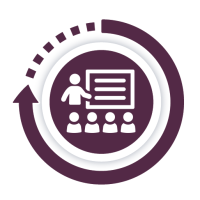
Hybrid Learning
Blend Self-Driven Learning With
Live Online Facilitation
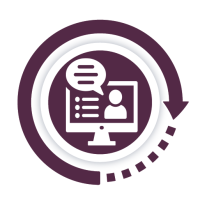
Occupational Certification
Accredited Online Learning
- Training Delivery Methods Designed for Real-World Impact and Flexibility
- Training Delivery Methods Designed for Real-World Impact and Flexibility
Knowledge alone is not enough. Our programs spanbring real workplace challenges into the learning experience, allowing participants to apply strategies, navigate complex situations, and achieve breakthrough outcomes in how they think, plan, act, and lead.
- Ongoing Support and Measurable Change
We don’t just deliver training and walk away. Our programs include structured feedback mechanisms, maturity improvement check-ins, and KPI-driven success tracking to ensure that participants are actively implementing what they’ve learned—and that organizations are seeing tangible improvements in workplace culture and performance.
Our Services
Culture & Brand Consulting
- Environmental Management Systems: Implementing robust environmental management systems to ensure compliance with regulations and promote sustainability.
- Regulatory Compliance Assessment: Conducting assessments to identify gaps in environmental compliance and develop corrective action plans.
- Environmental Impact Assessments: Evaluating the environmental impact of mining, forestry, and agriculture operations and recommending mitigation measures.
- Community Needs Assessments: Assessing the needs and concerns of local communities affected by mining, forestry, and agriculture operations.
- Stakeholder Engagement Strategies: Designing strategies to engage stakeholders, including local communities, indigenous groups, and non-governmental organizations, in decision-making processes.
- Social Impact Assessments: Evaluating the social impact of operations on local communities and implementing measures to enhance social responsibility and community development.
- Supply Chain Audits: Conducting audits of supply chains to assess environmental and social risks and identify opportunities for improvement.
- Responsible Sourcing Practices: Promoting responsible sourcing practices, such as sustainable procurement, fair trade, and ethical labor standards, throughout the supply chain.
- Supply Chain Transparency: Implementing systems and technologies to enhance transparency and traceability in supply chains, enabling companies to track and verify the origin and sustainability of raw materials.
- Brand Strategy Development: Developing brand strategies that align with sustainability goals and differentiate companies based on their environmental and social performance.
- Communication Campaigns: Designing communication campaigns to effectively communicate sustainability initiatives, achievements, and commitments to stakeholders and the public.
- Brand Reputation Management: Monitoring and managing brand reputation by addressing issues, responding to stakeholder feedback, and demonstrating continuous improvement in sustainability performance.
- Sustainable Practices Implementation: Assisting companies in adopting and implementing sustainable practices, such as regenerative agriculture, responsible forestry management, and energy-efficient mining techniques.
- Innovation for Sustainability: Facilitating innovation workshops and initiatives to encourage the development of new technologies, processes, and business models that promote sustainability.
- Performance Metrics and KPIs: Developing performance metrics and key performance indicators (KPIs) to measure and track progress towards sustainability goals and targets.
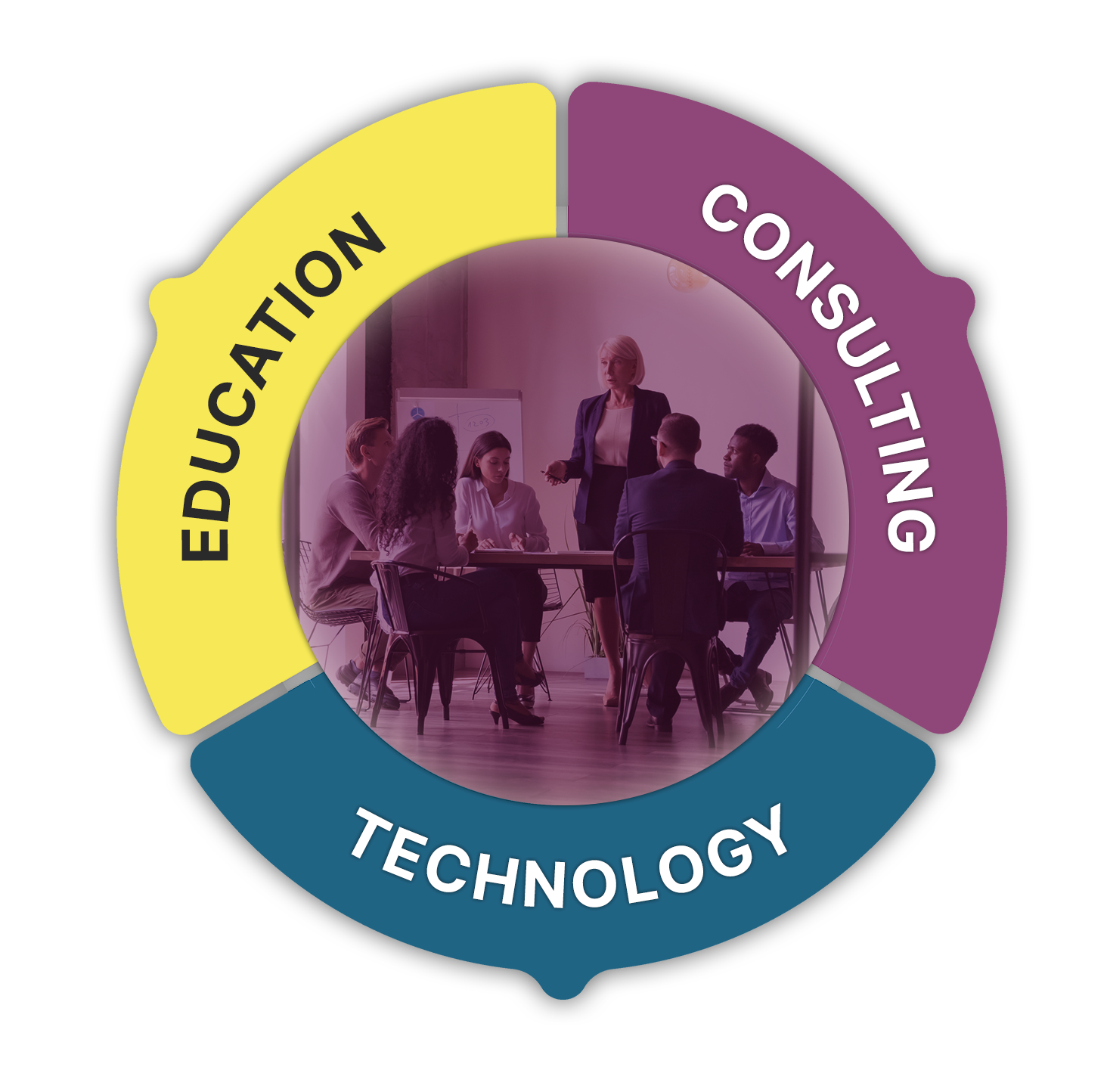
Request a Discovery Call
Unlock the potential of your organization with tailored solutions from our expert consultants. Whether it’s refining your operating model, optimizing HR strategies, or enhancing processes, we are here to help. Request a call today to explore how we can drive meaningful change together.
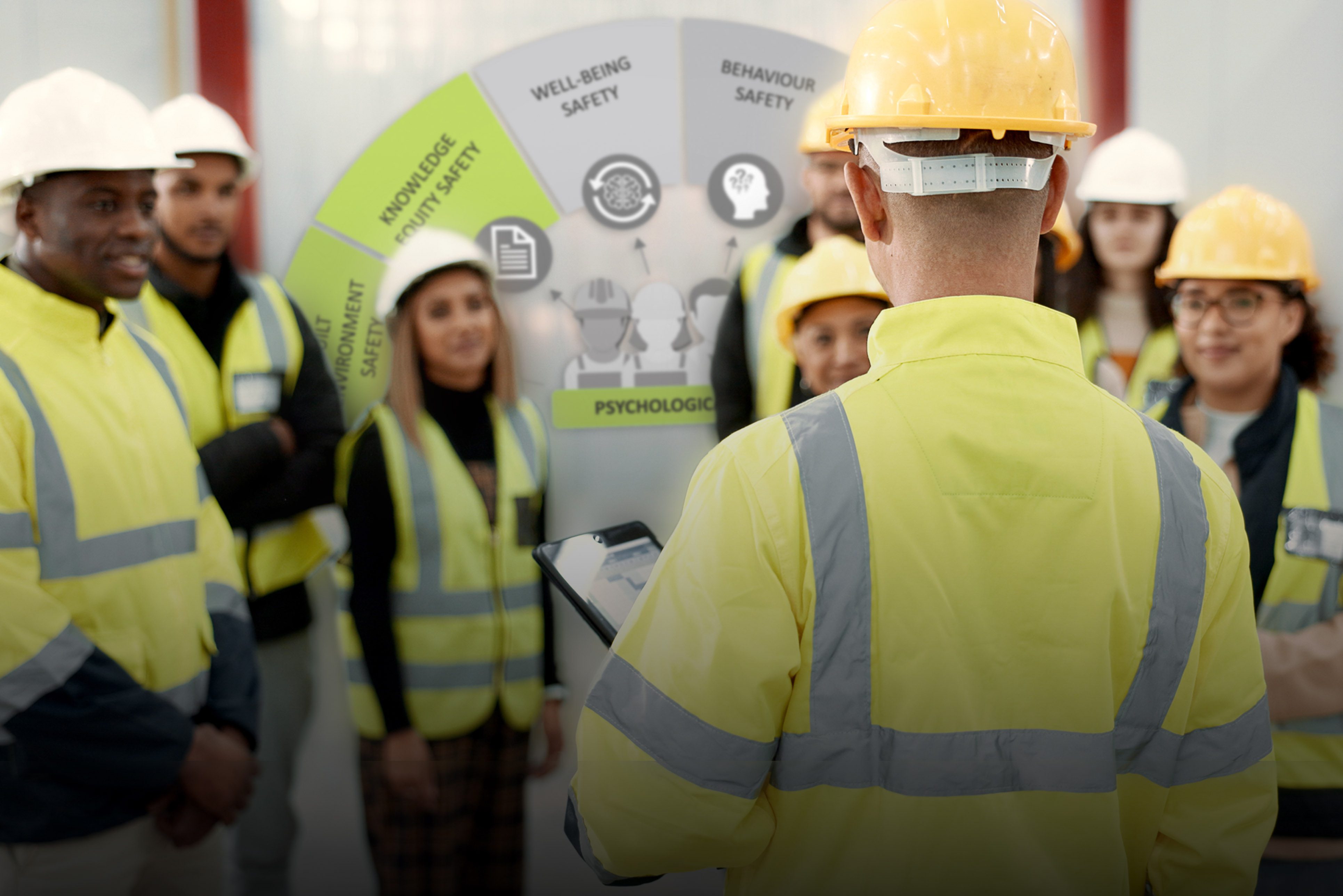
Learn More
Psychological safety is the foundation of high-performing teams, trust-based leadership, and innovative workplace cultures. This training provides leaders and employees with the tools to create an environment where everyone feels safe to contribute, voice concerns, and take risks without fear of retaliation. Grounded in the Whole Person Safety Model, this program ensures that psychological safety is not just encouraged but systematically integrated into leadership practices, policies, and team dynamics.
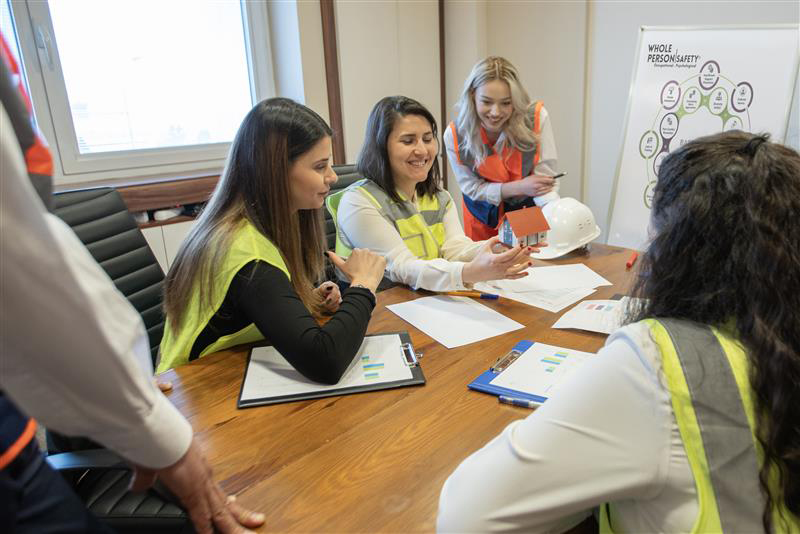
Learn More
Workplace safety must go beyond physical risks, psychosocial hazards such as workplace stress, toxic leadership, exclusion, and lack of role clarity create significant risks to employee well-being, engagement, and performance. This training equips organizations with the skills to identify, assess, mitigate, and prevent psychosocial hazards, ensuring compliance with workplace psychological health and safety standards while strengthening employee trust and retention. Using Whole Person Safety as the governance framework, this program ensures a proactive, structured approach to reducing workplace risks.
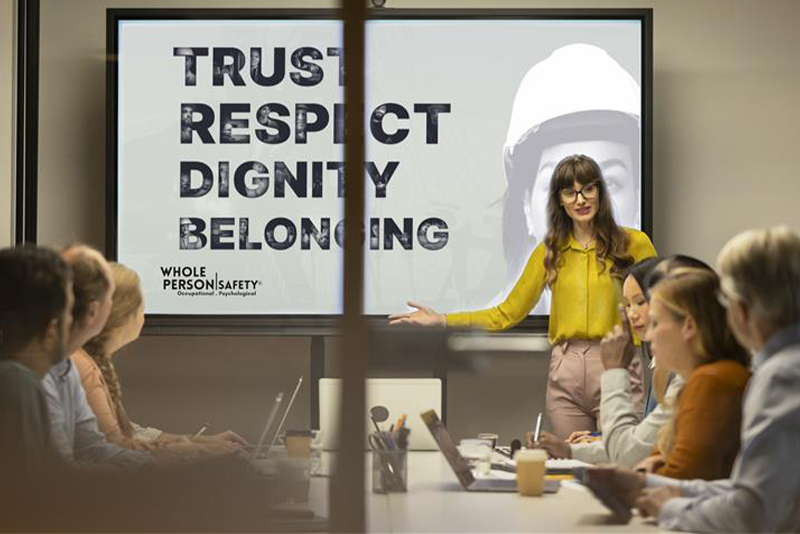
Learn More
Workplace harassment, bullying, and incivility thrive in environments where people are unsure how to intervene. This expert-led training empowers employees and leaders with the skills to recognize, respond to, and prevent misconduct before it escalates. Participants will gain practical intervention techniques, confidence-building exercises, and workplace-specific case studies to help them take action in a way that aligns with organizational policies and Whole Person Safety governance.
At TeamsynerG Global Consulting, we believe that true transformation happens when learning is lived, not just taught.
Our programs are designed to empower organizations with the frameworks, skills, and accountability measures necessary to create lasting, measurable change, not just deliver information. We challenge participants to bring their real-life situations and workplace challenges into the training experience, ensuring they walk away with actionable solutions, not just theories.
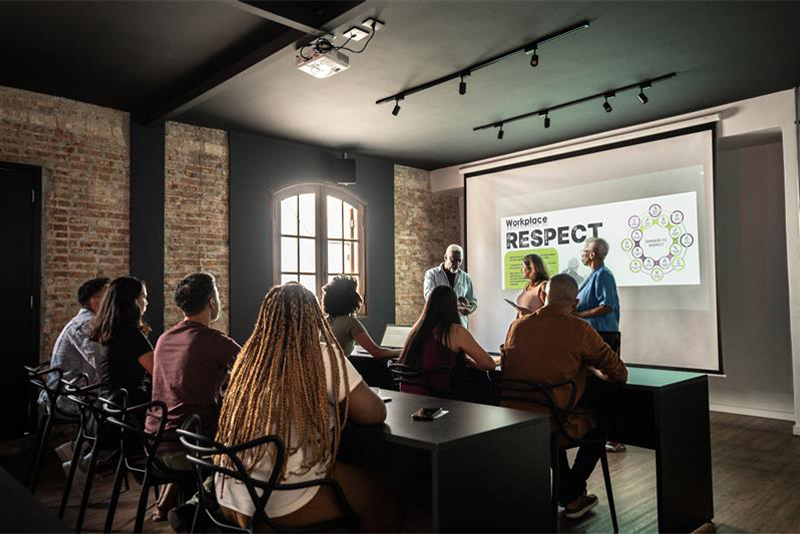
Learn More
Bias, whether conscious or unconscious, impacts decision-making, workplace relationships, and employee engagement. This training helps participants identify, challenge, and mitigate bias at the individual, team, and organizational levels. Using Whole Person Safety as the guiding framework, we provide tools to create inclusive communication, respectful workplace interactions, and policies that prevent discrimination from taking root in company culture.
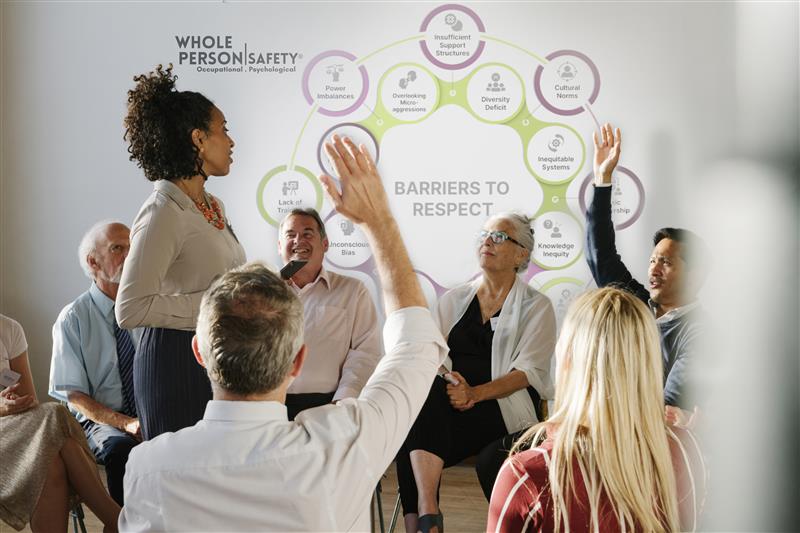
Learn More
Workplace safety must go beyond physical risks, psychosocial hazards such as workplace stress, toxic leadership, exclusion, and lack of role clarity create significant risks to employee well-being, engagement, and performance. This training equips organizations with the skills to identify, assess, mitigate, and prevent psychosocial hazards, ensuring compliance with workplace psychological health and safety standards while strengthening employee trust and retention. Using Whole Person Safety as the governance framework, this program ensures a proactive, structured approach to reducing workplace risks.
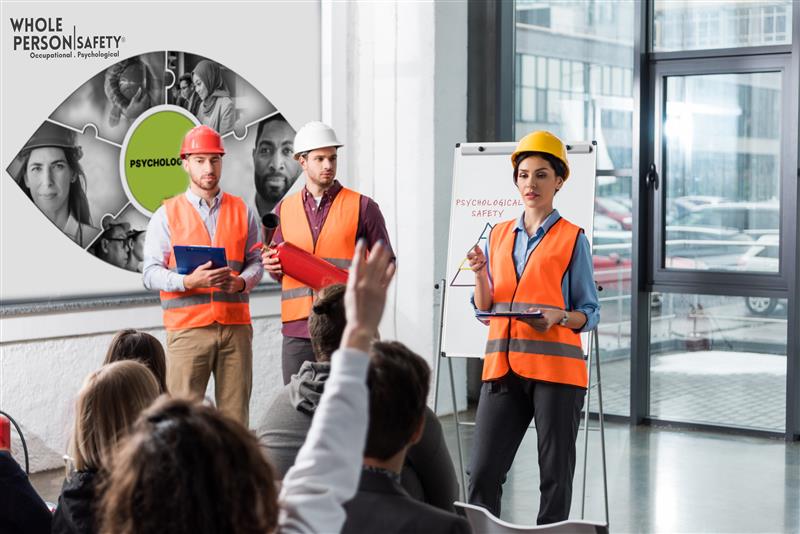
Learn More
Workplace harassment, bullying, and incivility thrive in environments where people are unsure how to intervene. This expert-led training empowers employees and leaders with the skills to recognize, respond to, and prevent misconduct before it escalates. Participants will gain practical intervention techniques, confidence-building exercises, and workplace-specific case studies to help them take action in a way that aligns with organizational policies and Whole Person Safety governance.
Are you ready for change?
Schedule Your Complimentary Discovery Call Today
It is important we understand your requirements to see how we can help bring solutions, innovation and determine your organization’s priorities, needs, and future opportunities. Let us know how we can help and collaborate to achieve sustainability goals. Request a call with our expert staff today!
